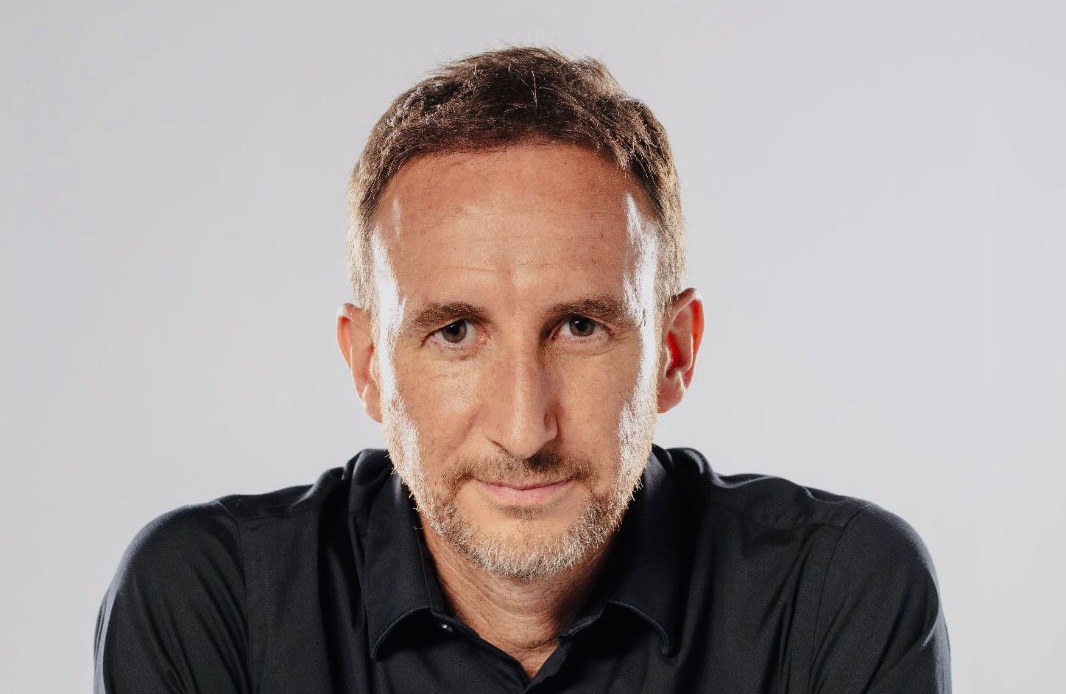- Face to face
- 20 de June de 2024
- No Comment
- 8 minutes read
Manel Alías: “It is necessary for teachers to be also good communicators”

FACE TO FACE WITH…
Manel Alías, journalist
Manel Alías: “It is necessary for teachers to be also good communicators”


The first time we met each other it was at Olorda’s High School in Sant Feliu de Llobregat. Manel Alías Tort was a journalist who was working for TV3 and Catalunya Ràdio, and he came to cover education news, and here’s how a teacher and a journalist met in 2013. And really, I’d notice he was quite an exception since it was evident that Manel was one of the few journalists that still remain being an education specialists.
With a reflective and slow voice, he spoke like someone walking through the snow so as not to leave too many footprints. I think this attitude was very useful for him when, some months later, he agreed to be a correspondent in Russia and since then we were not anymore intouch for quite a longtime. Now I have just red his unrepeatable book, that emerged from his experience as a correspondent and from the Soviet Union reality itself. We are talking about ‘Rússia, l’escenari més gran del món’ (2021).
Could you explain to me the details of your latest professional project?
I am currently focused on Catalunya Nit, a Catalunya Ràdio’s daily nightly news program. Every day, at 10:00 p.m., we explain live the most important news of the day and those that will also make headlines on the next day.
In the best style of someone who left a few yearse ago, Joan Barril? The quiet Radio?
Yes, we do it in a relaxed and thoughtful way, with the utmost rigor, from our own perspective and always thinking about what we consider it has to be a good public network information service.
What positive relationships would you establish between your professional projects and the educational training you received?
I am very grateful for the training I received. I’m one of those people whose father stopped attending school at the age of 14, to go to work in a factory and later on in a mine, and I graduated from university. This already says a lot about our society.
Quite a dream given that situation?
Yes, but not only that. My mother was a schoolteacher. Therefore, since I was a kid, I had a direct relationship with the educational world. First the school, then the high school and, finally, the university, which offered me the possibility of being well trained, although I’m affraid I didn’t take as much profit as I could have taken.
What do you mean?
I mean that, whether consciously or unconsciously, I did not get the most out of the University. I was more focused on passing my exams than really learning. But this was my fault. I am aware I have always carried that lack on my back.
And why did you make up your mind on journalism?
The profession I have chosen is one of those you might make up certain deficiencies with personal skills, for example, communication skills. I studied Audiovisual Communication at the UAB, from 1995 to 1999. It offered basic, general knowledge, but at that time I felt that a couple of courses would have been good for me to specialize in some additional subject.
History? Geography?
I don’t know, but I had that feeling.
Regarding the current educational system, if you had been trained in it, would this have improved or worsened your professional activity?
It’s hard for me to say since society and my profession have both changed a lot in the last years. Unfortunately, I did not have a classmate from another country at school. There was no one. And as well, in what’s to do with my profession, when I entered university to study Audiovisual Communication, for example, I had never recorded before a video. Never.
“I have never realized whether to know how to take a square root might important or not. I knew how to do it to pass the exams and that was it”
Why?
Because we never had a video camera at home, nor a cell phone -actually they did not exist yet-. Anyway, if we leave these elements aside, I have the feeling that before the demand was perhaps higher, but on the other hand we did not find any usefulness in many of the things we were being thaught. Possibly this has been improved by now.
What would you have improved in education?
I think I would have improved by becoming aware of the “why”. I have never realized whether to know how to take a square root might important or not. I knew how to do it to pass the exams and that was it. I knew if I’d fail in square roots, then I had no summer vacation, so I did it. But I have never known what application it could have, why it was important to know how to do it. Now, the feeling I had was that knowledge was used to pass exams. I wasn’t aware of the practical applications. I hope this has changed today.
I can assure you it has changed a lot, Manel, but looking at your professional career, how do you think the current education system should be improved?
I think it happened before and it probably happens now too. If you look at the curricula, it seems pretty good. That is to say, if the whole society knew what a second year high school student is supposed to know, if you look at everything he has theoretically learned in primary and secondary school, it is not bad. The problem is to guarantee that knowledge have been achieved deeply and lastingly. I think the important thing is that teachers must be able to convey the «why». And the first «why» is why it is important for you to learn what I am going to explain to you now. To achieve this, it is necessary for teachers to be also good communicators.
And this is where we are
Yes, you and me.
Source: educational EVIDENCE
Rights: Creative Commons

